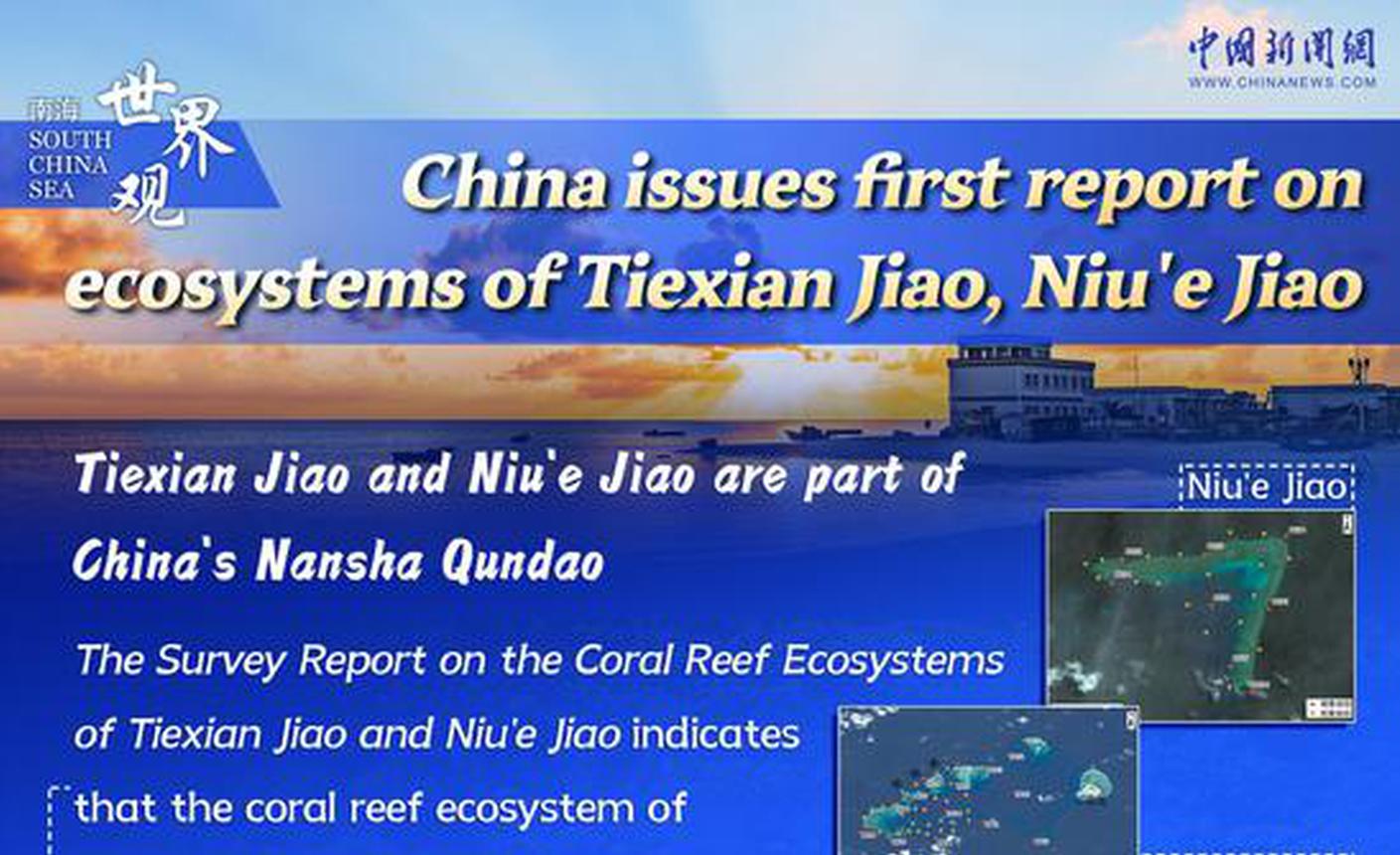By Zhang Dongfang
(ECNS) -- France's latest deliberations on its anti-fast fashion bill reveal much more than it looks. While ostensibly aimed at reducing environmental damage by clamping down on affordable fashion, the bill harbors deep seated anti-globalization sentiments that disproportionately impact Chinese online retailers, particularly targeting China's garment and textile supply chain, and blatantly ignoring ongoing efforts around the development of China-EU free trade.
Audrey Millet, an expert on French fashion history and a scholar at the University of Oslo in Norway, and Renaudot Essay Prize 2022 nominee, previously said in an interview that the bill is suspected of building momentum for the European Parliament election while violating the WTO principles of free competition and free trade.
Professor Chen Jin from the University of International Business and Economics in Beijing believes the growing trend of global trade protectionism and increasing barriers are key factors behind such measures. Chen emphasized that such a unilateral trade protection measure violates the WTO's principles of free and fair trade.
Critics of the bill question the true intent behind the now clearly Sinophobic bill, which has been mutated to target only Chinese companies, as the rationales presented by the different factions are founded on baseless allegations about everything except the original intent -limiting harm to environment.
The latest addition to the cacophony that is muddying the original intention of the bill are calls from the main trade federations in France to specifically delist Chinese e-commerce platforms AliExpress, SHEIN and Temu, with the French Trade Council (CDCF) and the Confederation of French Trade (CCF) claiming that "85% to 95% of the products offered on Temu, SHEIN and AliExpress do not comply with the standards in force in the EU."
These two representative federations, along with 14 others and more than 230 brands (around 80% of the sector), sent an open letter to the French government via the French Fraud Control Agency (DGCCRF), to "immediately initiate procedures to delist" SHEIN, Temu, and AliExpress.
However, cries of injustice are not just rising overseas. Within French borders, Impact France, an NGO that originally spearheaded advocacy efforts for the bill, has hit back that the latest version no longer meets the ecological transformation goal of France.
In an earlier statement in an interview with China Daily, Wang Peng, a researcher at the Beijing Academy of Social Sciences said, "The bill is more like a crackdown on specific fashion companies that have risen rapidly and are attracting attention." A statement that is given further credence when public figures, like French right-wing Republican senator, Sylvie Valente Le Hir, have accused “Chinese giants of ultra-fast fashion” of bringing "unfair competition" to local brands, alluding to the fact that French brands are simply unable to keep up with Chinese industry..
Chinese cross-border e-commerce platforms, such as Shein and Temu, are rapidly rising in the world because they are bringing more and more Chinese products to consumers around the world with affordable prices, Wang Xin, president of the Shenzhen Cross-Border E-Commerce Association, told Global Times.
"Due to its advantages such as large market scale, efficient logistics payment system and service support, China's cross-border e-commerce platforms quickly attracted global users and sellers," said Wang.
China has maintained its position as the leading supplier of garments to France for years and has quickly risen to outpace European stalwarts like H&M, Primark and Zara, by appealing to fashion and cost-conscious consumers across demographics, who will certainly bear the brunt of any hasty decisions by French National Assembly. The bill could lead to a 5-10 Euro per piece price increase on clothing items.
While the current narrative in France postures that China, through the likes of AliExpress, SHEIN and Temu, is the exclusive winner in an unfair battle, the reality is that commerce is two-way, symbiotic, and that France and French brands have gained much from doing business with China, and continue to reap the benefits. Between 2023-Q4 and 2024-Q4 the exports of France to China increased by €123M (1.95%) from €6.29B to €6.42B. According to Business France, from 2019 to 2023, French luxury brands' exports to China jumped by more than 100 percent.
French brands from Lancome to Louis Vuitton, L'Oreal to Lanvin, have long enjoyed a stable and fair business environment in China, achieving sustained growth and securing China as an irreplaceable market for many French businesses.
At the mass-appeal end of the spectrum, French sporting goods retailer, Decathlon, for example, has seen China as a key market. Its CEO Barbara Martin Coppola stated that the country is not only one of Decathlon's top five global markets but also holds a unique and strategically vital position worldwide.
The fast fashion bill, widely seen as unfairly penalizing Chinese companies and supply chain, could have dire results on China-France beneficial trade relations after being passed.
Last October, Beijing imposed temporary anti-dumping duties on brandy and cognac imported from the EU in retaliation for the bloc’s tariffs on made-in-China electric vehicles, causing significant damage to French cognac industry.
Socialist Party lawmaker Fabrice Barusseau, representing France's cognac producing region, said, “In 2025, for the month of February alone, exports to China fell by 72 per cent," adding that China was responsible for 25 percent of French cognac sales.
Stéphane Bianchi, managing director of French luxury giant LVMH, which owns the cognac brand Hennessy, warned in a message to French lawmakers that 80 percent of cognac exports were sold to two countries: China and the US.
"If Europe does not get its act together, does not coordinate and does not try to negotiate, the industry will disappear,” Bianchi said.
If France pushes forward with its anti-China policy, China would be forced to introduce corresponding measures to address trade imbalances, potentially affecting French exports to China as well as severely impacting major brands from the likes of LVMH, Kering and Hermes International, which rely heavily on the local market. The benchmark CAC 40 Index rose 14 per cent in 2023, outpacing other major markets, thanks to that trio of luxury companies, plus cosmetics maker L’Oreal, who combined, accounted for more than a third of the gain, much of which can be attributed to Chinese consumers.
Now, imagine what a disastrous impact it should have if China considered retaliating by imposing sanctions on French brands. Not even a brand new RedNote account will be able to save Chanel, Louis Vuttion and Dior.


















































 京公网安备 11010202009201号
京公网安备 11010202009201号